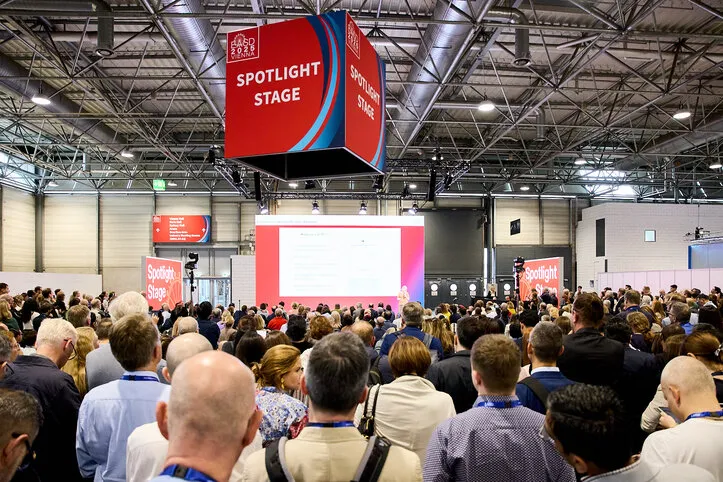
New results from three major clinical trials have found that existing medicines could help protect surviving insulin-making cells in people newly diagnosed with type 1 diabetes.
The findings were presented at the European Association for the Study of Diabetes (EASD) annual meeting – a gathering of over 14,000 diabetes researchers and professionals.
When people are first diagnosed with type 1 diabetes, they can still have up to 30% of their insulin-producing beta cells. These cells are then gradually killed off by the immune system over the following months or years.
Cutting edge-treatments called immunotherapies aim to halt or slow this continued destruction, allowing the pancreas to carry on making some insulin.
Preserving even small amounts of natural insulin production matters. It can mean steadier blood sugar levels, fewer hypos, and lower insulin injection or pump doses, and could help reduce the risk of long-term complications.
MELD-ATG: A breakthrough for children
The MELD-ATG trial tested an immunotherapy drug called anti-thymocyte globulin (ATG).
This is already used in high doses to alter the immune system’s behaviour and prevent organ rejection after transplants. But high doses can cause serious effects, which makes ATG challenging to use in children.
In the MELD-ATG trial, 117 children and young people aged 5–25 years, who’d been diagnosed with type 1 diabetes within the last 9 weeks, received different doses of ATG or a placebo through a one-time intravenous (IV) infusion. Researchers wanted to find the lowest dose that could be effective.
The results showed that even at much lower doses, ATG helped protect beta cells and preserve participants’ insulin production, without the harsh side effects.
ATG is cheap, widely available, and now shown to hold great potential as a safe and effective treatment in young children and adults with newly diagnosed type 1 diabetes.
BANDIT: A daily pill that works while taken
Next up, the BANDIT trial tested baricitinib – an oral immunotherapy drug that’s already used to treat autoimmune conditions such as rheumatoid arthritis.
Ninety-one children and young people aged 10–30 years, within 100 days of their type 1 diabetes diagnosis, either took a daily baricitinib pill for 48 weeks, or a placebo.
The latest BANDIT results showed those taking baricitinib kept producing more of their own insulin and needed less injected insulin than the placebo group.
However, once participants stopped taking it, the benefits faded. Baricitinib works while it’s being taken, but the drug hasn’t yet shown lasting effects after treatment ends – like ATG or some other immunotherapies have.
Nonetheless, baricitinib remains a very promising option, especially since it’s in pill form - making it easy to take - and is already used for other conditions.
Ver-A-T1D: A blood pressure pill with promise
Finally, the Ver-A-T1D trial studied verapamil in 136 adults recently diagnosed with type 1 diabetes. Verapamil is a pill that has been used in children and adults for more than five decades to treat blood pressure and heart conditions.
Unlike ATG or baricitinib, verapamil doesn’t target the immune system – so isn’t an immunotherapy. Instead, it appears to block proteins that play a role in beta cell death, helping them survive longer.
Participants either took a daily verapamil pill or a placebo for 12 months. Results showed encouraging signs that verapamil could help preserve insulin production.
The study was designed with the expectation that, without any treatment, people would lose their remaining beta cells quite quickly, as seen in earlier research. But in this trial, those in the placebo group lost them more slowly than expected.
As a result, the difference between the verapamil and placebo groups was too small to show the benefit of verapamil with certainty – even though the findings look encouraging.
Since verapamil is cheap, widely available worldwide, safe, and easy to take, there’s still a lot of potential for its use in type 1 diabetes. Researchers say that with bigger trials, or used in combination with immunotherapies, verapamil could still prove useful.
Combination trials are already underway, including T1D plus that’s currently recruiting in the UK through the Diabetes UK and Breakthrough T1D funded UK Type 1 Diabetes Research Consortium.
What the trials mean for people with type 1 diabetes
Larger clinical trials and regulatory approval are the next steps before these drugs could become real-world treatments for people with type 1 diabetes. But together, the findings bring real hope that treatment options other than insulin may soon be in reach for people newly diagnosed with type 1 diabetes.
We’re entering a new era in type 1 treatment: moving beyond simply managing the condition to changing its course. This builds on the momentum of the first immunotherapy – teplizumab – being licensed in the UK.
Teplizumab is used even earlier in the development of type 1 – before too much damage is done to beta cells – to delay the need for insulin treatment in people in the early stages of type 1 diabetes.
In the US, ATG is already being tested in people with early-stage type 1 through the STOP-T1D trial. Researchers are also preparing to study verapamil at this early stage, with baricitinib potentially following.
While for those who’ve lived with type 1 for longer, immunotherapies may still play a vital role in combination with future treatments aimed at replacing lost beta cells.
Our research, including the Type 1 Diabetes Grand Challenge, is advancing the development of future therapies designed to preserve or restore insulin production.
